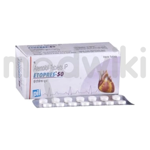atenova
Introduction to atenova
Atenova is a medication primarily used to manage high blood pressure and heart-related conditions. By helping to lower blood pressure, it reduces the risk of serious heart issues such as strokes and heart attacks. Additionally, it is beneficial in managing chest pain, known as angina, and can improve survival chances after a heart attack.
Composition of atenova
Atenova contains the active ingredient Atenolol, which is a type of medication known as a beta-blocker. Beta-blockers work by blocking the effects of stress hormones on the heart and blood vessels.
Uses of atenova
- Lowering high blood pressure
- Managing chest pain (angina)
- Improving survival after a heart attack
Side effects of atenova
Common side effects:
- Feeling tired or sleepy
- Dizziness
- Nausea
Serious side effects:
- Changes in heart rate
- Severe drop in blood pressure
- Breathing difficulties
- Serious allergic reactions
- Mental health issues
Precautions of atenova
Atenova should not be used if you have a slow heartbeat, certain heart blockages, a serious heart condition called cardiogenic shock, severe heart failure, or an allergy to it. It is also important to avoid stopping the medication suddenly, as this can worsen heart problems or even cause a heart attack. Additionally, it should be avoided if you have lung problems like asthma.
How to Take atenova
- The usual starting dose for adults is 50 milligrams once a day.
- Your doctor may increase the dose to 100 milligrams if needed.
- Older adults or those with kidney problems may start with a lower dose of 25 milligrams.
Conclusion of atenova
Atenova is an effective medication for managing high blood pressure and heart-related conditions. It is important to follow your doctor's instructions and be aware of potential side effects and precautions. Always consult with your healthcare provider before making any changes to your medication regimen.














.svg)
